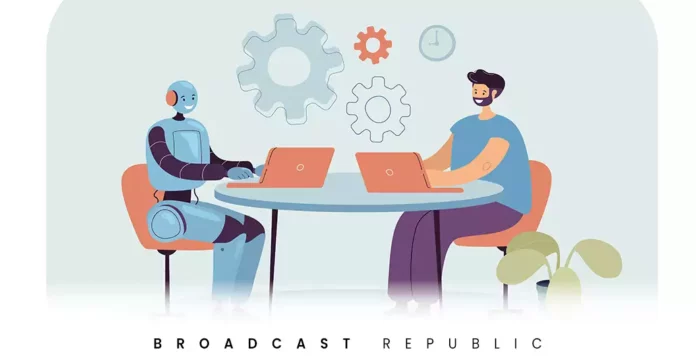In a move that could revolutionize the world of journalism, Google has recently introduced “Genesis AI” – a groundbreaking artificial intelligence tool that can autonomously generate entire articles for journalists. By requesting just a few essential facts, this cutting-edge technology aims to streamline the writing process and allow reporters to focus on other critical tasks.
The tool has been presented to major media outlets, including the New York Times, the Wall Street Journal, and the Washington Post, with Google describing it as a “journalists’ personal assistant.” However, the response from industry insiders has been mixed. While some view it as a potential game-changer that could enhance productivity and efficiency, others are skeptical, pointing out that the AI might underestimate the complexities involved in crafting well-researched and compelling news stories.
Jenn Crider, a Google spokesperson, emphasized that the AI-enabled tools are intended to complement journalists, not replace them. They could assist with tasks such as generating headline options or adopting different writing styles. Nevertheless, the essential role journalists play in reporting, creating, and fact-checking their articles remains indispensable.
The exact division within Google responsible for Genesis AI remains uncertain. However, the company already offers similar AI features like “Help me write” in Gmail and Google Docs, along with a context-sensitive version called Magic Compose in Messages.
Looking ahead, it’s conceivable that a Language Learning Model could be specifically trained on a news organization’s archives, allowing the AI to emulate its distinct writing style. OpenAI’s recent partnership with the Associated Press aims to explore such applications of generative AI in new products and services, emphasizing the potential for collaboration between technology and journalism.
Despite the promise of AI-assisted tools, it’s crucial to recognize their limitations. Machines can sometimes produce factually incorrect information and unreliable answers, raising concerns about the possible pitfalls of overreliance on AI in the journalistic process.
As the world ventures further into the realm of AI, it’s essential to strike a delicate balance between harnessing the technology’s potential and preserving the human touch that makes journalism invaluable. While Genesis AI may hold promise, it may also be too early to hand over complete control to machines. The key lies in leveraging AI as an aid, empowering journalists to delve deeper into the stories that shape our world. Only then can we ensure a responsible and accurate future for news reporting.

